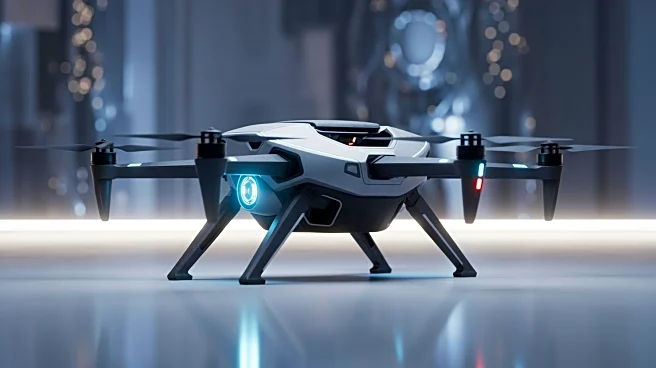What's Happening?
Traditional government services providers are facing significant challenges as they navigate a rapidly evolving technological landscape. According to Brian Gesuale, managing director of the Raymond James Equity Research Group, these companies must transform
or risk becoming irrelevant. Gesuale's research indicates that large government services firms like Booz Allen Hamilton, CACI International, and Leidos have relied heavily on acquisitions for growth, with 60% of their expansion over the last decade coming from acquired companies. This reliance on acquisitions is becoming financially challenging, as artificial intelligence displaces labor positions and acquisition costs inflate. Gesuale highlights the need for these companies to adapt by leveraging AI and addressing structural issues to maintain growth.
Why It's Important?
The challenges faced by traditional defense services companies have broader implications for the U.S. defense industry and its stakeholders. As technology disrupts traditional business models, companies that fail to adapt may see stagnation in growth and investment returns. This shift could impact employment within the sector, as AI replaces labor-intensive roles. Conversely, companies that successfully integrate AI and technology into their operations stand to benefit from increased investment and growth opportunities. The rise of tech disruptors like Palantir and AeroVironment highlights the potential for innovation-driven growth, which could reshape the defense landscape and influence public and private investment strategies.
What's Next?
For defense services companies, the path forward involves reimagining their value propositions and moving away from labor-based work. This transformation is crucial to avoid sinking into irrelevance. Companies that address structural issues and capitalize on AI, software, and manufacturing opportunities may see expanded investment and growth. As the market enters a 'Fifth Defense Revolution' dominated by robotics and algorithms, stakeholders will likely focus on technological advancements and strategic investments. The evolution of these companies will be closely watched by investors and policymakers, as it could influence defense strategies and economic policies.
Beyond the Headlines
The shift towards technology-driven solutions in the defense sector raises ethical and cultural considerations. The displacement of labor by AI could lead to workforce challenges and necessitate retraining programs. Additionally, the integration of autonomous technology in defense systems may prompt discussions on the ethical use of AI in warfare. Long-term, this technological revolution could redefine national security strategies and influence global defense dynamics, as countries adapt to new technological capabilities.
















